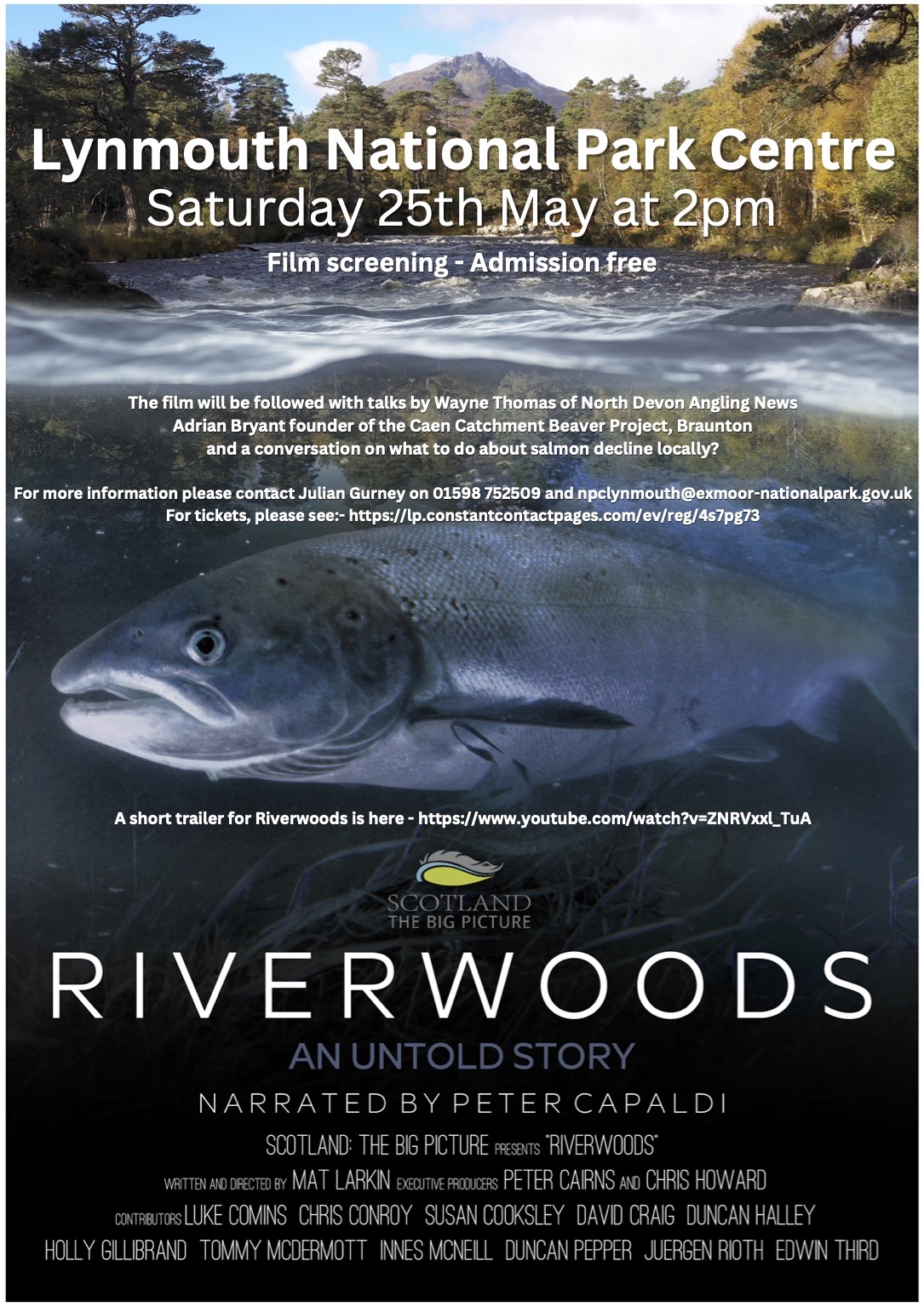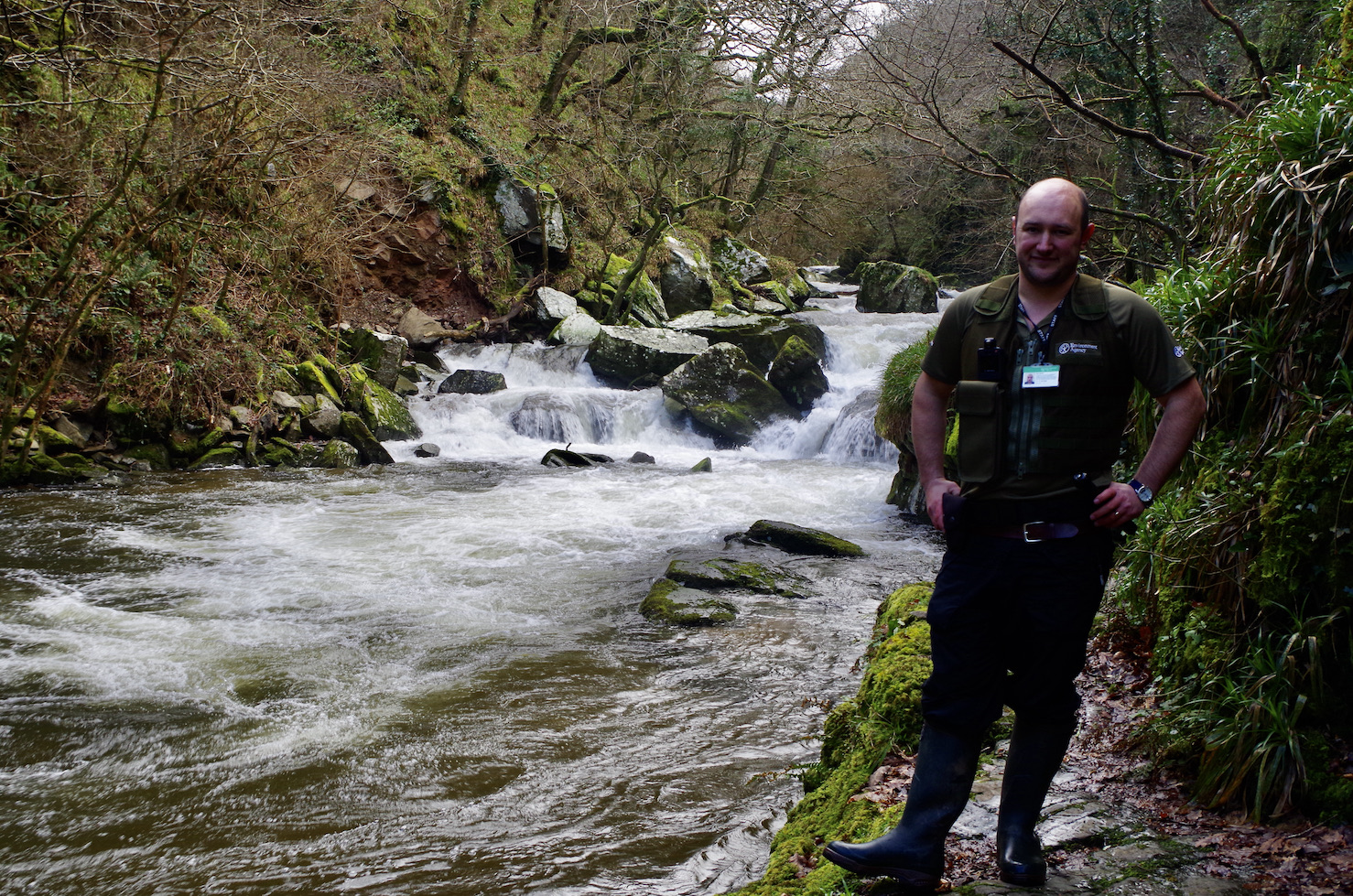
Sam Fenner the Environment Agency’s North Devon fishery enforcement officer is keen to engage with the local angling community and has recently attended several club AGMs.
Sam previously worked in Scotland gaining valuable experience working with the farming community in byelaw enforcement. He brings this extensive knowledge to his role in North Devon that involves a wide patchwork of rural landscape.
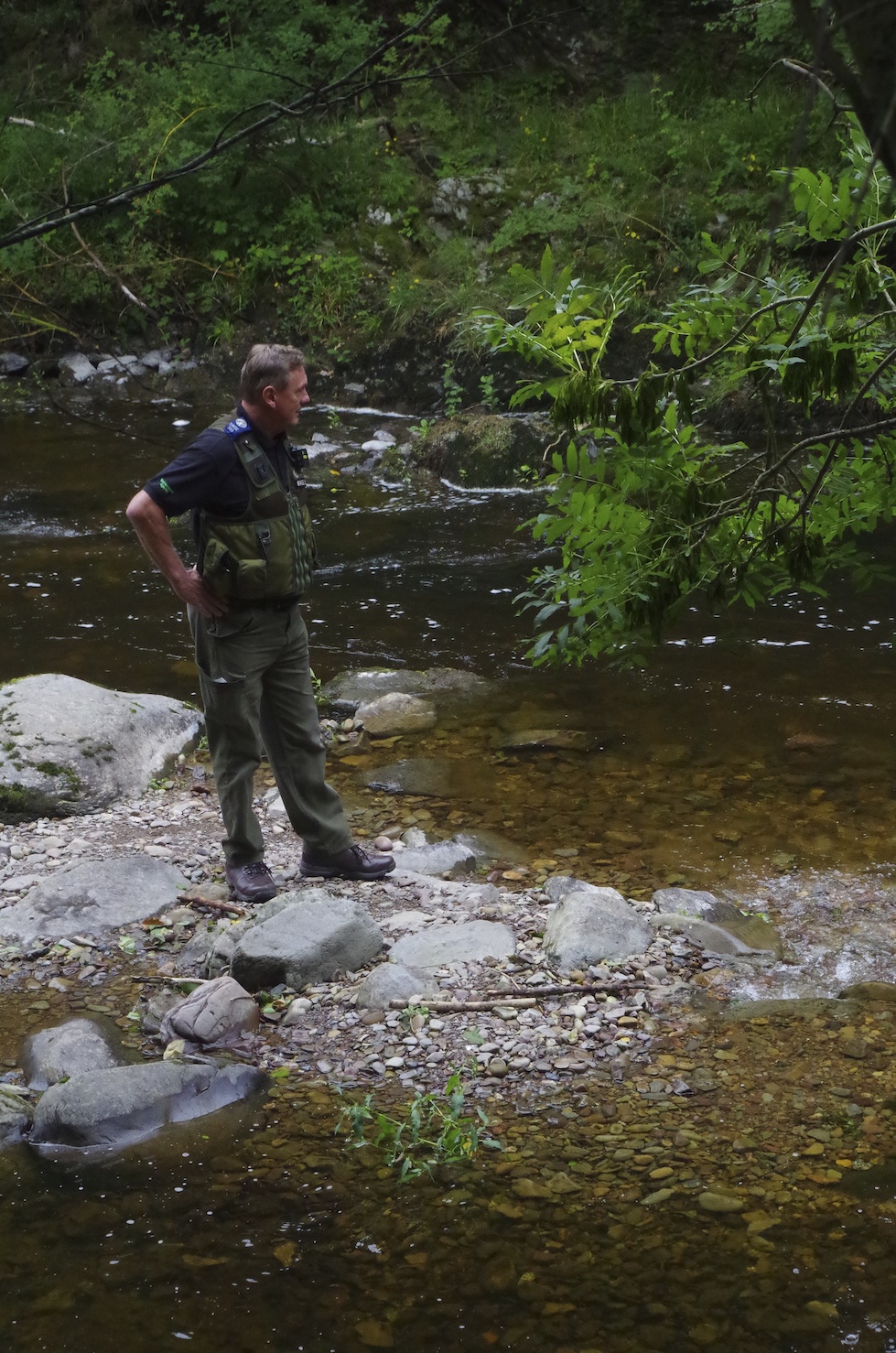
I joined him for a walk along the River East Lyn one of North Devon’s most beautiful and historic rivers. It was early March when we met and the river was running high and clear after one of the wettest February’s on record.
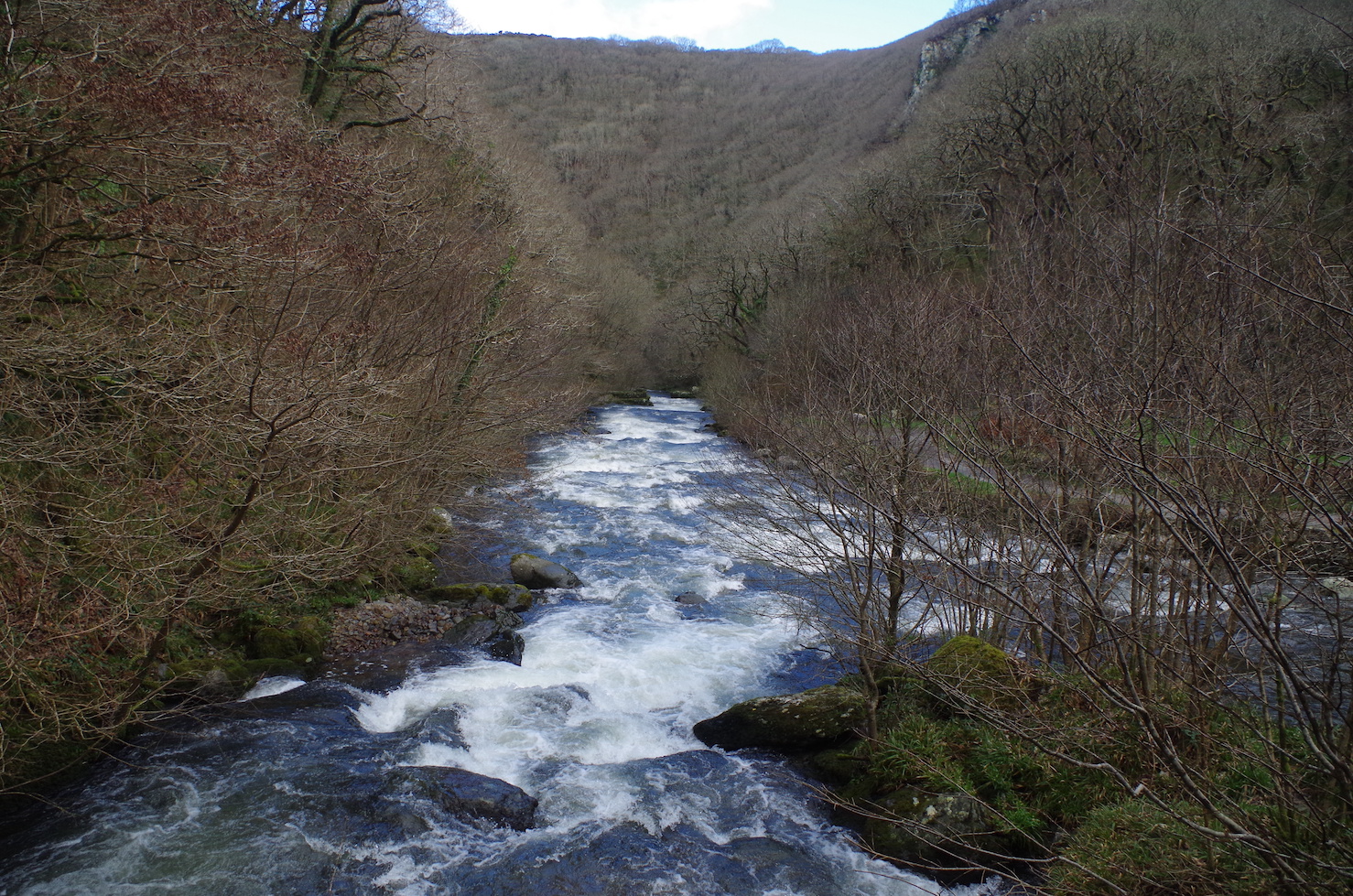
The salmon fishing season commences on March 1st on the Environment Agency’s day ticket fishery. Trout fishing starts on March 15th. The salmon run generally gets underway in late April or May if conditions are suitable with the river very dependent on rain.
The dramatic decline of salmon was very much top of the agenda as we walked the river. Having fished the Lyn intensively in the 1980s I have many good memories of those days of plenty. Though when I talked with anglers back then the fishing was still just a shadow of its glory days in the fifties and sixties.
The water quality of the East Lyn is undoubtedly still good as there is no extensive agricultural pollution. Poaching is no longer a significant problem on the Lyn so the main issues facing its salmon and sea trout are undoubtedly survival at sea and predation.
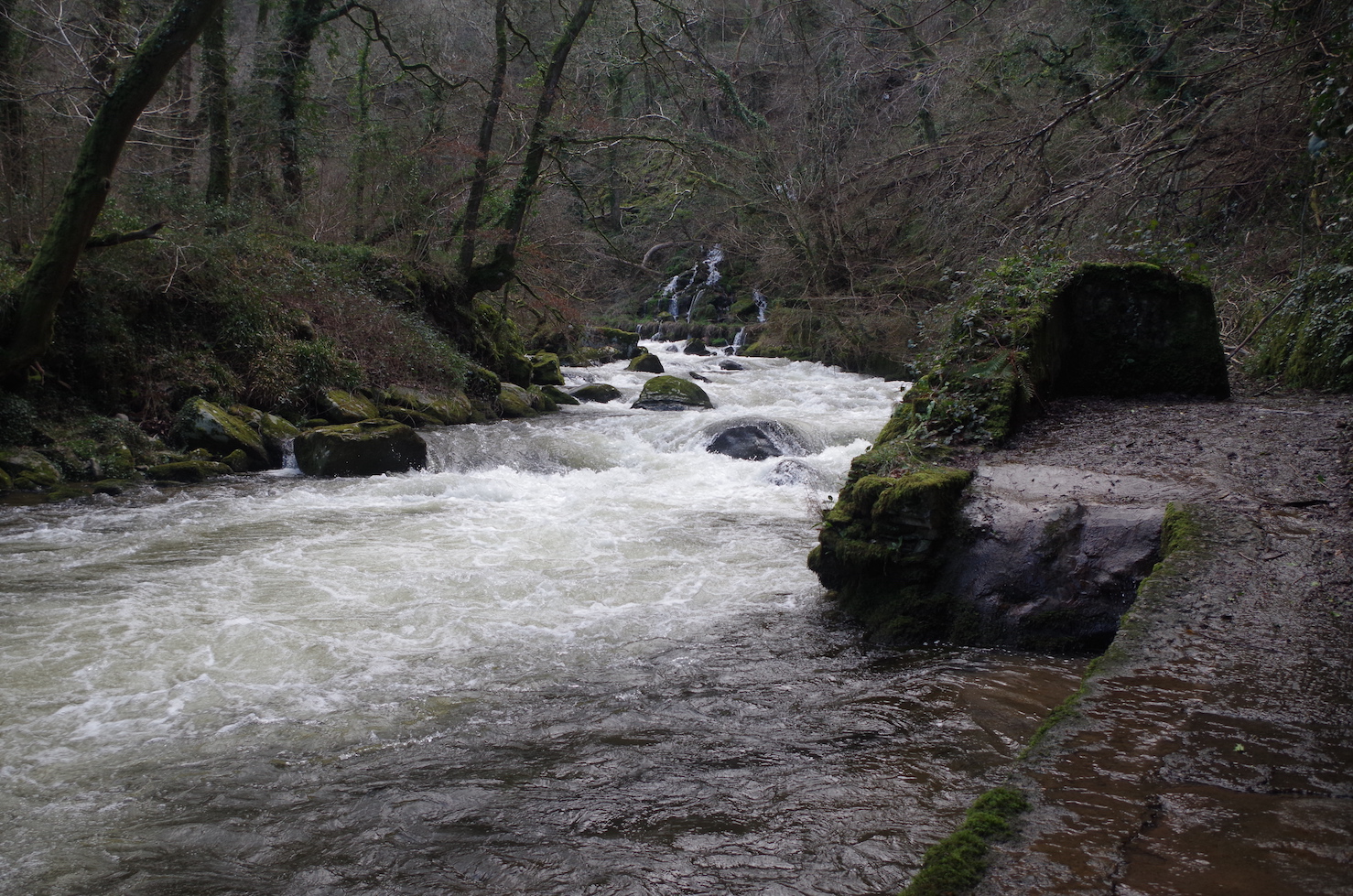
The Lyn offers superb fishing for abundant wild brown trout at a very reasonable cost of around £5.00 per day. Tickets are available from Barbrook Filling Station.
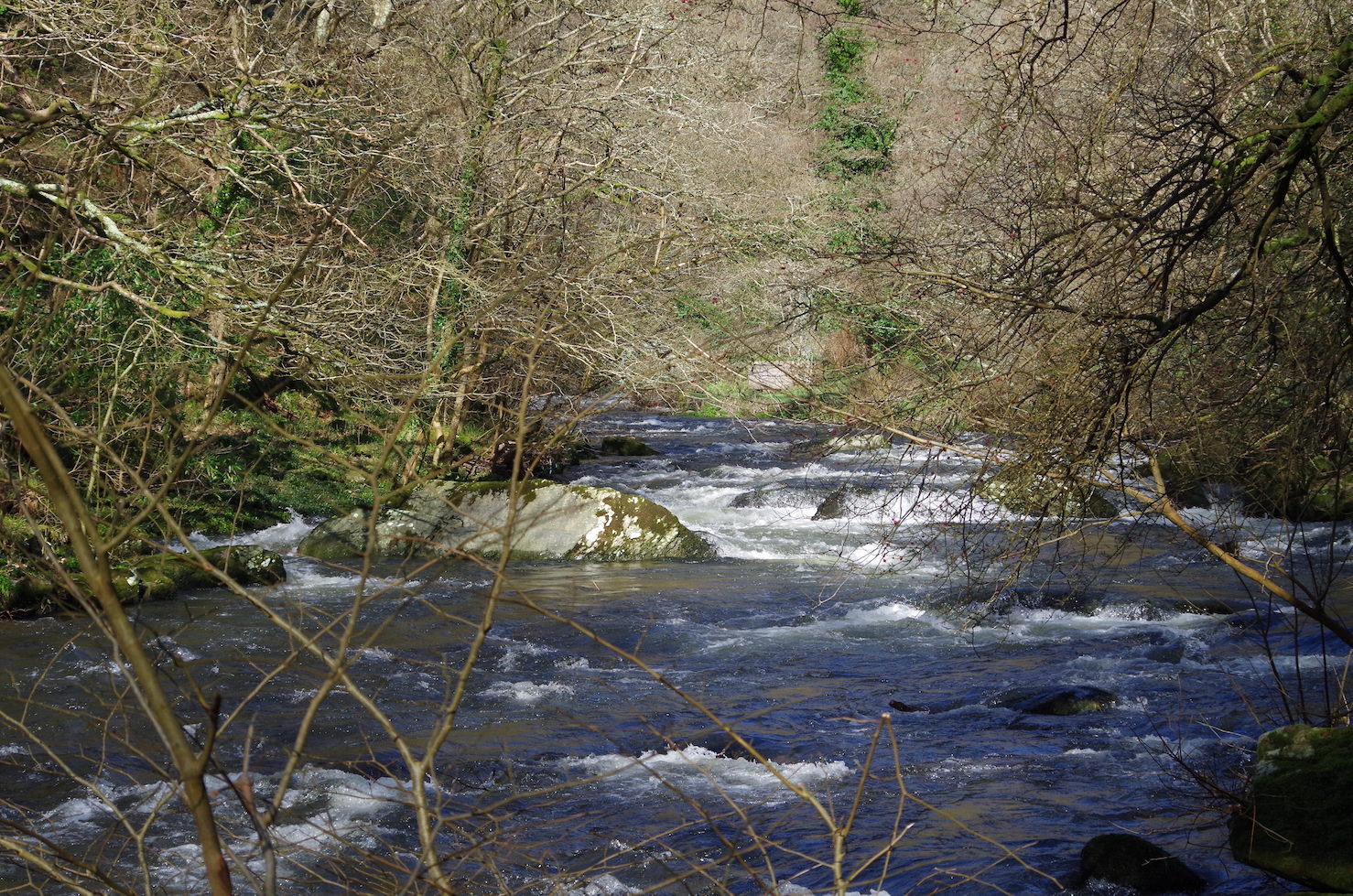
We started our walk at Torrs Road and walked up to Ash Bridge half a mile above Watersmeet. I was able to relay plenty of stories relating to the Lyn and we paused at Overflow and Vellacott’s Pool both of which have a rich history. The recent decimation caused by ash die back is plain to see on the rivers banks and this has undoubtedly been a major issue for the National Trust. Sadly some pools that were prime salmon holding pools are now difficult to access with some angler’s paths now overgrown.
We sighted a pair of goosander above Watersmeet a species that undoubtedly predate on smolts and salmon parr within the river.
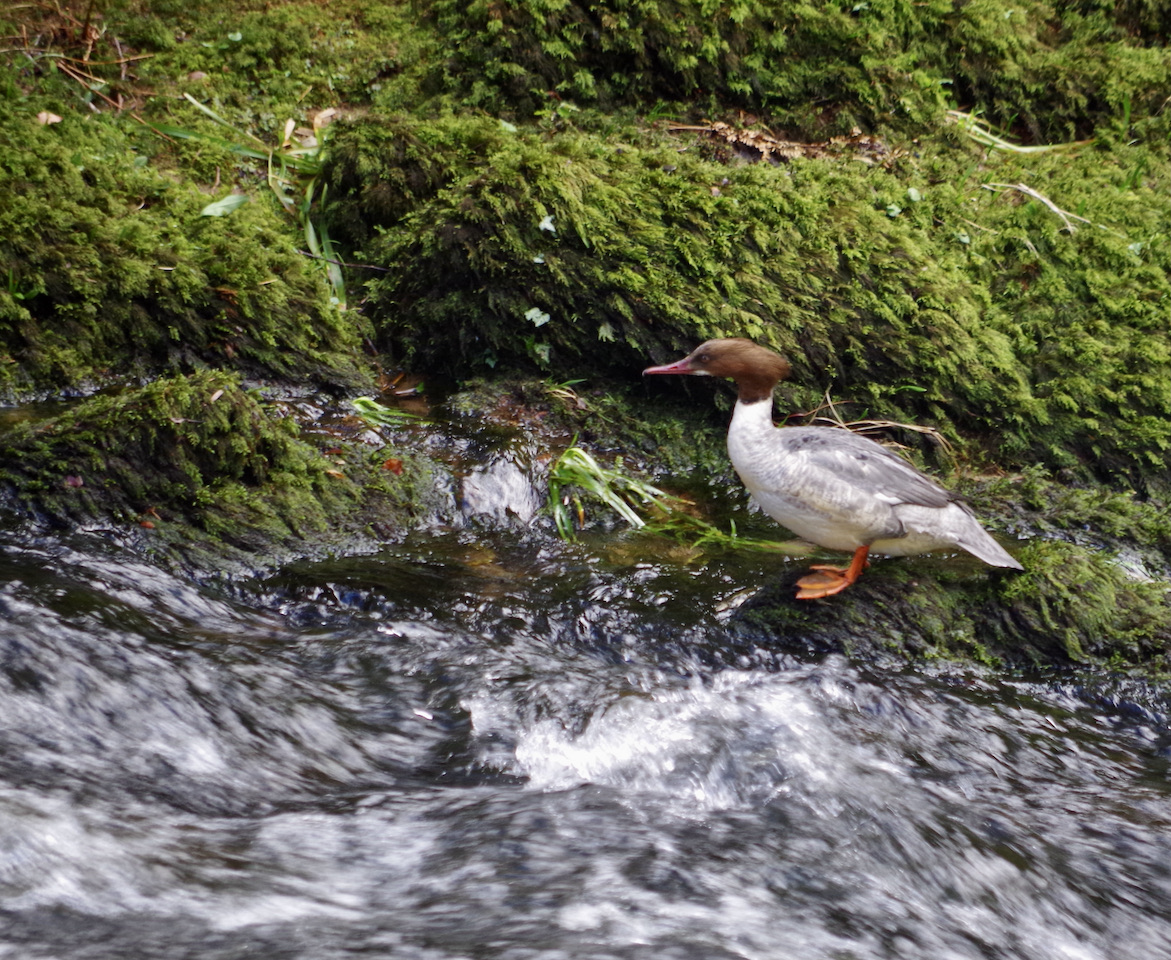
The boulder strewn river was as beautiful as ever and I look forward to returning its banks with the fly rod later in the Spring when its crimson spotted trout offer exciting sport.
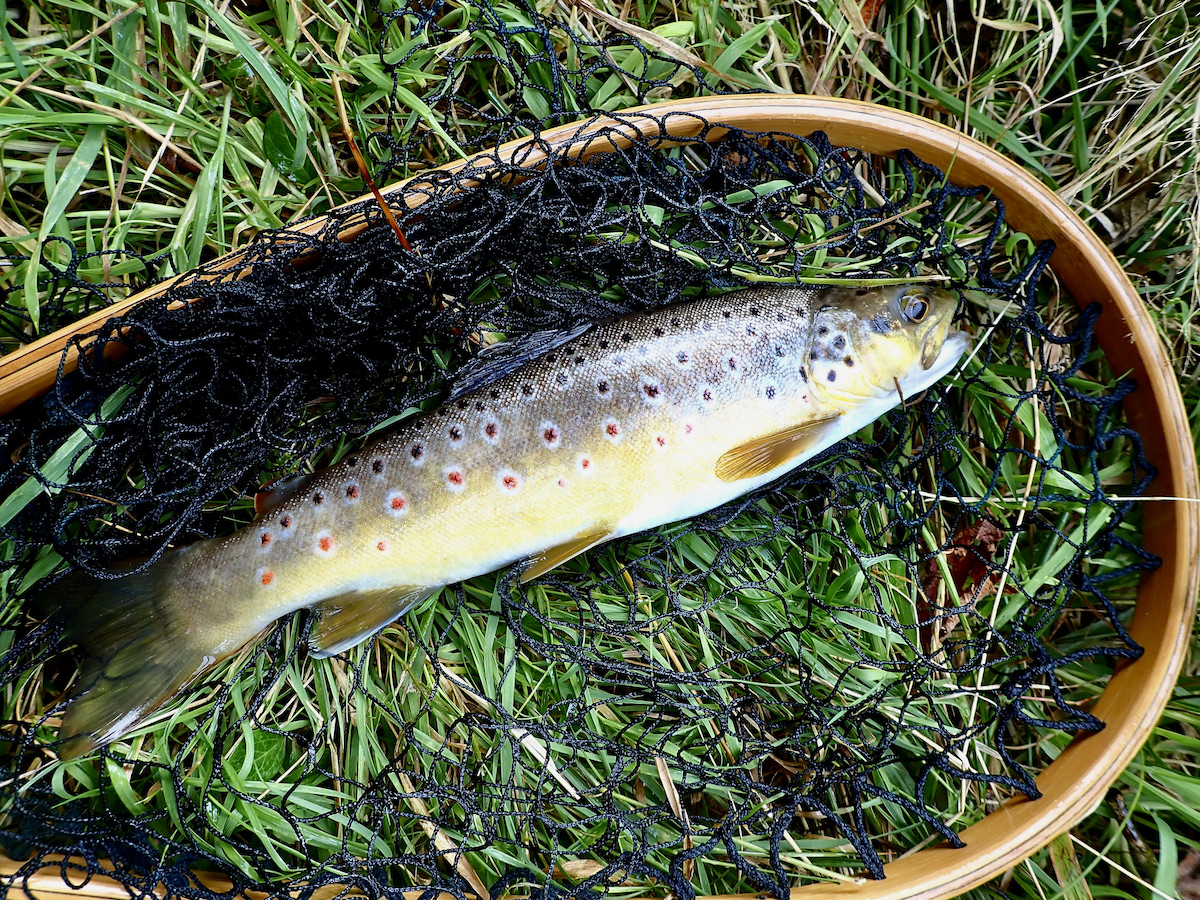
Sam talked of the challenging role of being fishery enforcement officer. He is very keen to encourage more anglers to enjoy the superb fishing the Lyn has to offer.
Rod licence checking is one of Sam’s main roles, he also works to enforce local byelaws, assist with pollution incidents. Offers advice to fishery owners and clubs regarding stocking and fish health, promotes angling and its mental health and community benefits in conjunction with the Angling Trust. Sam also works with the D&S IFCA in carrying out estuary protection work.
Sam’s area consists of all of North Devon and its rivers and stillwater’s. Quite a challenge if you consider that there were up to eight fishery enforcement officers during past decades.
After walking the river we adjourned to the National Parks Pavilion Centre for a coffee and a chat with Julian Gurney who has a wealth of experience in relation to the River Lyn and its history. Julian has written a piece for the Exmoor Magazine that includes the fascinating history of fish traps at the mouth of the Lyn and the coastline.
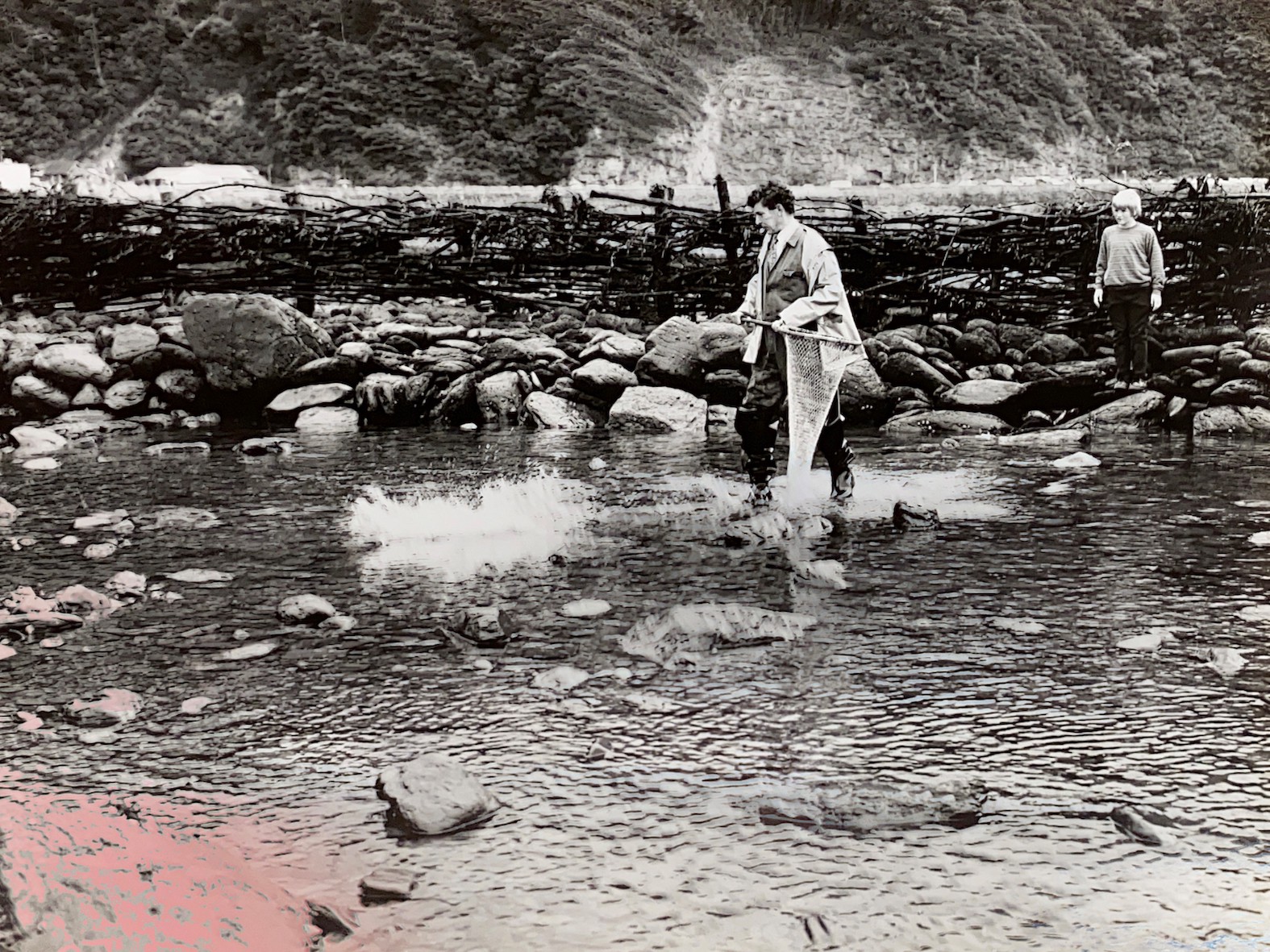
Sam urged that any signs of pollution or poaching should be reported to the Environment Agency via their hotline : 0800 80 70 60
